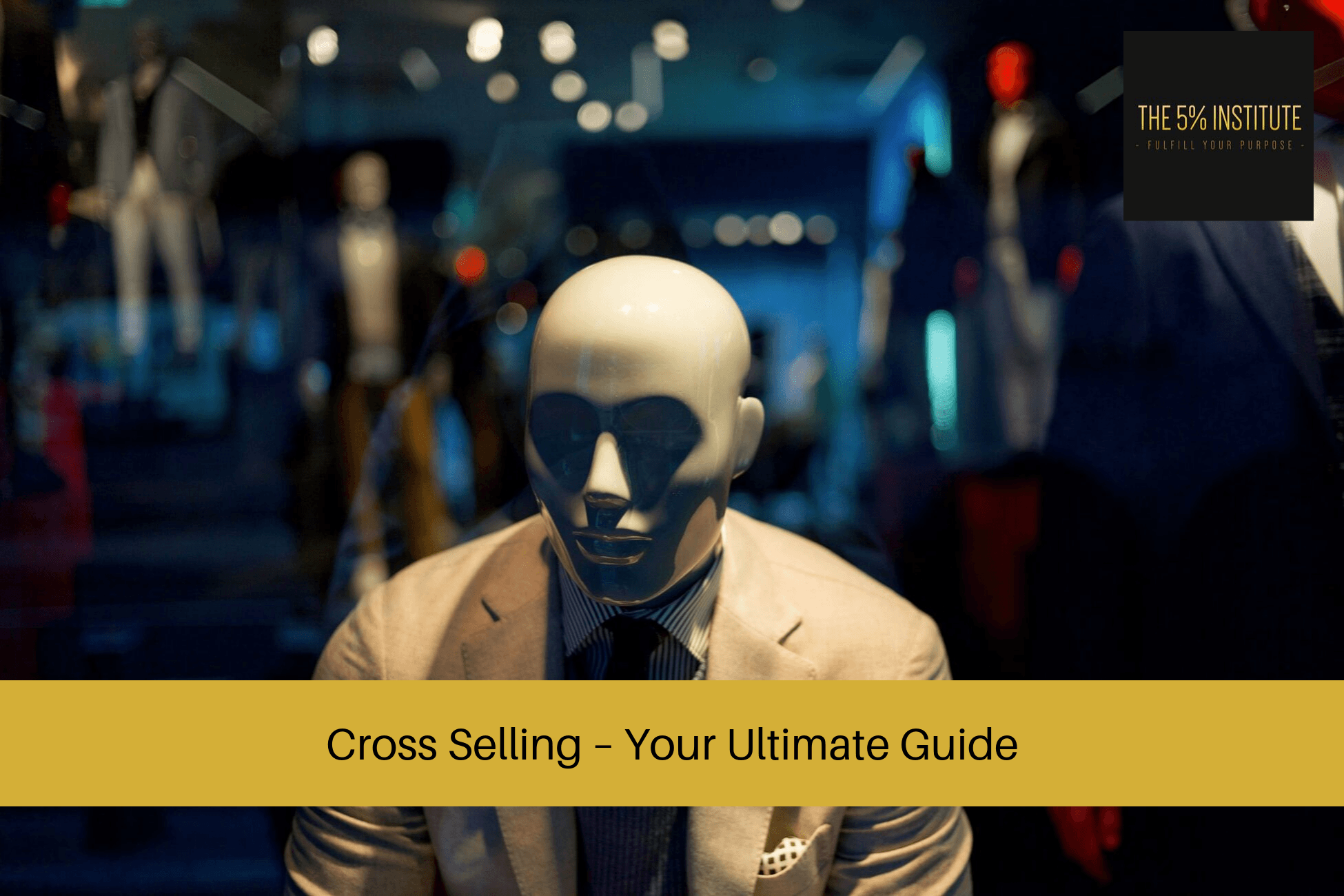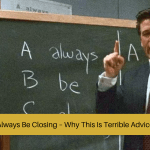
Cross Selling – Your Ultimate Guide
Cross selling is when you offer a complimentary or paid product or service to your clients, when they buy one of your other products and services.
So how can you effectively implement cross selling as a part of your sales strategy, and what is the difference between cross selling and up selling?
We’ll look into this and much more below.
Cross Selling – Your Ultimate Guide
What Is Cross Selling, And Is It Important?
As mentioned; cross selling is offering your new or existing clients another product or service after they’ve just made a purchase.
The reason it’s important, is twofold.
First of all, the best way to increase your business and sales effectiveness, is to help your clients get to their own specific outcomes as soon as practicably possible.
If you offer a product or service that can help them achieve this (within the same type of cost and price range), then offering them this helps them achieve their desired outcome.
Keep in mind for this to work; you need to come from a place of service, by wanting to help them achieve their own specified outcomes and goals.
Secondly, cross selling is important because it’s a great way to get more monetary value from a person who has already bought, rather than by starting again and looking for a new customer or client.
Getting new clients can be expensive and time consuming – because you need to establish rapport, trust and of course desire for a sale to take place.
When someone has already bought, they’ve already established the required rapport, trust and desire to buy from someone like you or your business. This makes it easier to sell to them and increases the lifetime value of your client.
Cross selling is an effective ingredient in your sales strategy, because it increases the return on investment for initially enrolling clients into your business.
What’s The Difference Between Cross Selling & Up Selling?
So what’s the difference between cross selling, and up selling?
“Would you like fries with that?”
Chances are you’ve heard this famous phrase before if you’ve ordered a meal at a McDonald’s chain before.
The staff member has been trained to offer something else along with your new purchase; and something quite cheap to buy which may compliment your order.
This is cross selling. You’ve bought perhaps a burger – and they then ask you whether you’d like fries with that, or whether you’d like to turn it into a meal package.
Up selling is similar; but with the intention of getting you to spend more instead.
An example could be buying a new Mercedes Benz.
The Sales Professional has been trained to up sell you on a more expensive model, or with more expensive and upgraded features; such as anti-roll bars, performance seats or even a V8 engine.
Up selling is offering you to spend more via an upgrade, where cross selling is selling you something alongside your initial purchase.
How To Use It Effectively
As mentioned earlier, cross selling effectively works when you come from a place of service, with your potential clients desired needs and outcomes at heart.
There’s a number of key things to look at prior to using cross selling as a part of your strategy.
What Do They Need Before, During And After
As Jay Abraham famously teaches, one of the first questions you should ask prior to starting a cross selling or up selling strategy – is what do they need before, during and after buying your product or service.
For example – if you’re selling real estate, what happens before they buy, what do they need to buy once they’ve just bought a home from you, and what should they buy just afterwards?
Prior to buying; they may purchase a guide on how to effectively buy a property with zero money to minimal money down – if they were perhaps investing.
During the purchase; they may buy the services of a mortgage broker, who can get them a great rate. Just afterwards, they may buy the services of a furniture removalist or someone who can do landscaping or even home maintenance?
Listing out what people buy before, during and after will help you understand what you can cross sell and up sell.
Bonus tip: By learning what they buy before, during and after – you can meet with people in your industry who can compliment each of these areas, and work on a commission-based referral strategy.
You can learn more about referral strategies in the article below:
Related article: How To Get Referrals – 5 Ways To Boost Your Sales
Understand Their Pain Points And Desires
What pain, problems or struggle is your potential client moving away from by buying your products or services? By understanding and listing these out, you can learn more about how you can serve them with what products you already have existing, or what you can produce to compliment your offer.
You may have different clients with different pain points. Your core offer may solve some of their problems, but you may need to create new products or services to solve the nuanced and specific issues for their niche’d needs.
This is exciting – as it helps you serve more people and increases your bottom line and lifetime value per person who invests in you.
Position Yourself As A Specialist, Not A Commodity
A commodity positioned Sales Professional, is a person who builds some rapport, pitches their product hoping you’ll get interest, and then ask questions and overcomes objections later.
This is an old sales methodology, and no longer works in today’s marketplace.
Instead, your approach should be more consultative; asking questions, learning about their pain points, and explaining how your products and services complement their needs and desires.
This positions you as a Specialist, and helps you truly understand if you can in fact use cross selling with your other products and services when they buy.
Only by effectively asking open-ended questions, will you truly be present enough to hear what it is they want and need, and then use cross selling as a part of your game plan to further assist them get to their desired outcomes.
To learn more about consultative selling, click on the related article below.
Related article: What Is Consultative Selling – And Should You Be Using It?
Final Thoughts
Cross selling and up selling are both great strategies to include into your business strategy, because it helps your clients get to their desired outcomes more efficiently and effectively.
Secondly, using cross selling in the right way increases the lifetime value of your clients, which adds more profit into your business.
If you want to learn more about consistently closing more clients, register for our 7 day sales challenge here.
Want To Close Sales Easier?
Are you committed to closing sales a lot easier, and consistently?
If so, you should check out our self-paced and affordable online sales training program; The 5% Sales Blueprint.
It’ll give you everything you need to close sales consistently.
To learn more, simply click on the link below for more information.
Our Online Sales Training Program – The 5% Sales Blueprint.



